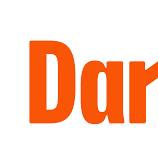So, you’ve decided to develop software or applications. But now that you’ve made this decision, where should you begin? Perhaps you’re not up for the difficult task of creating an internal team. Staff augmentation services and project-based consulting are two of the most popular ways to create software. So, which is better?
Staff augmentation and consulting services are two different options for businesses seeking professional help. Both have their own advantages and disadvantages, which this article will explore in detail. After reading this article, you should have a better understanding of which option is right for your business.
What is Staff Augmentation?
Staff augmentation is a service that provides businesses with access to in-house staff. These staff members are experts in specific areas, such as software development or project management. Staff augmentation services allow businesses to outsource specific tasks, which can help reduce costs and improve efficiency.
When to choose Staff Augmentation?
There are several times when staff augmentation is the best option. First, if your business lacks the resources or expertise to complete a project, staff augmentation can be a great way to fill in the gaps. Staff augmentation can also help improve efficiency by allowing businesses to outsource specific tasks. Additionally, staff augmentation is a great option for businesses that need to scale up or down quickly.
Pros of Staff Augmentation
1. Expertise:
Staff augmentation services provide businesses with access to in-house experts. These experts are often specialists in specific areas, such as software development or project management. This can help businesses reduce costs and improve efficiency.
2. Reduced Costs:
Staff augmentation services allow businesses to outsource specific tasks, which can help reduce costs.
3. Improved Efficiency:
By outsourcing specific tasks, businesses can improve efficiency by allowing their internal staff to focus on more important tasks.
4. Scalability:
Staff augmentation services are scalable, which means businesses can increase or decrease the number of staff members as needed.
5. Flexibility:
Staff augmentation services are flexible, which means businesses can change staff members or terminate their contracts at any time.
Cons of Staff Augmentation
1. Expertise:
Staff augmentation services often provide businesses with access to in-house experts. These experts are often specialists in specific areas, such as software development or project management. This can limit the flexibility of businesses, as they may not be able to find consultants with the same expertise.
2. Reduced Flexibility:
Staff augmentation services are often inflexible, as businesses are often locked into contracts for a set period of time. This can limit the ability of businesses to make changes to their staff or projects.
3. Increased Costs:
Staff augmentation services can be expensive, especially if businesses need to increase or decrease the number of staff members.
4. Inefficient:
Staff augmentation services can be inefficient, as businesses may not be able to find staff with the right skills or experience. This can lead to delays and frustration for both businesses and staff members.
What is Consulting?
Consulting is a service that provides businesses with access to outside experts. These experts can provide guidance and advice on specific projects or areas of business. Unlike staff augmentation services, consulting services do not provide businesses with access to in-house staff. Instead, businesses must hire consultants on a project-by-project basis.
When to Choose Consulting?
There are several times when consulting is the best option. First, if your business lacks the resources or expertise to complete a project, consulting can be a great way to fill in the gaps. Additionally, consulting is a great option for businesses that need to scale up or down quickly.
Pros of Consulting
1. Expertise:
Consulting services provide businesses with access to outside experts. These experts can provide guidance and advice on specific projects or areas of business. This can help businesses to improve their operations and performance.
2. Efficiency:
Consulting services can help businesses to become more efficient. This is because consultants can provide advice on how to streamline processes and improve overall effectiveness.
3. Cost-effective:
Consulting services are often a cost-effective way for businesses to receive expert advice. This is because the services can be tailored to meet the specific needs of a business. In addition, the use of consultants often results in improved efficiency and reduced costs.
4. Expertise:
Consulting services provide businesses with access to outside experts. These experts can provide guidance and advice on specific projects or areas of business. This can help businesses to improve their operations and performance.
5. Fresh perspective:
Consulting services can also help businesses to gain a fresh perspective on their operations. This can be especially beneficial for businesses that have become stagnant or are struggling with growth. A fresh perspective can help businesses to identify new opportunities and improve their performance.
6. Access to resources:
Consulting firms have access to a wide range of resources, including databases, software, and experts. This can be beneficial for businesses that need to conduct research or need help with a specific project.
7. Continual improvement:
The best consulting firms are always looking for ways to improve their services. This means that businesses can rely on them to provide the latest and most effective advice.
8. Save time:
Businesses can save time by outsourcing specific tasks or projects to a consulting firm. This can free up employees’ time to focus on other important tasks.
9. Professionalism:
Consulting firms are often professional and well-organized. This can be beneficial for businesses that need assistance with a specific project.
10. Confidentiality:
Consulting firms typically maintain high levels of confidentiality for their clients. This can be beneficial for businesses that need to keep their operations confidential.
Cons of IT Consulting
There are several disadvantages of working with an IT consulting firm:
1. Cost:
The cost of working with an IT consulting firm can be expensive, especially if you need help resolving a complex problem.
2. Time:
It can take time to get up to speed with the consultants and even more time to see results.
3. Lack of control:
You may lose some control over your IT systems when you work with a consultant.
4. Limited resources:
Often, consultants have limited resources and cannot commit to long-term projects.
5. Limited scope:
Consultants typically have a limited scope of services, which may not meet all your needs.
6. Lack of expertise:
Consultants may not have the same level of expertise as your in-house IT staff.
7. Poor communication:
Communication can be a challenge when working with consultants, especially if they are located remotely.
8. Inflexibility:
Consultants may be inflexible and unwilling to change their approach, even if it’s not working.
9. Lack of accountability:
If something goes wrong with your IT systems, it can be difficult to hold the consultant accountable.
10. Reluctance to share knowledge:
Consultants may be reluctant to share their knowledge and expertise with your in-house IT staff.
Conclusion
The decision to use a consulting firm for IT services is not always easy. There are many benefits of using outside experts, but there can be drawbacks as well. The most important thing you should consider when working with an IT consultant is whether they will meet your needs and goals while being cost-effective. This means that it’s important to assess how much you need help, what you want to achieve, and how much you’re willing to spend. If you can find a consultant that meets all of your requirements, it can be a valuable relationship for your business.





